Your Web
Presence
I just
finished reading a blog by Gerald Klickstein, author of the
Musician's Way, regarding the importance of musician's building websites to
promote and sustain their career. In the
blog "Build a Website," Mr. Klickstein states "All musicians need websites to
present their work to the world and build relationships with fans." While it is true that building a website can
be helpful, I don't believe it is of paramount importance in today's
market. Building a presence via social
media is much more important. Let me explain.
You can
build a gorgeous website with all the bells and whistles that Mr. Klickstein
suggests and it can flounder in obscurity forever. Unless you understand SEO (search engine
optimization), SEM (search engine marketing), keywords, meta tags, meta
descriptions, site maps and a multitude of other web specific technologies,
your website will just be one of millions and millions of websites in the
internet universe and every few people will ever see what you have
created.
Don't get me
wrong, websites can be extremely useful, but only for connecting to people you
have met personally. You have to hand your business card to an individual
directly and give a sales pitch to get them to follow up and take a look at
what you have to offer on a web site. (Suggestion: Add a QR code to
your card to allow them immediate access to your site via mobile device.)
If you already have performances lined up and are meeting lots of people face
to face in the industry, then your website could be very useful. (But you could
achieve the same results with a good social media profile page.) However,
if you think that lots of people you don't know will somehow magically visit
your website, you are very mistaken. Here is why....
Remember
that thing called "SEO?" Without
SEO, the giant search engines, like Google, will never know you exist. For example, type in the words
"classical music" into google.
The first couple of items that show up are "paid" links that
companies have paid google to place at the top of the list. (For a term like "classical music"
those links are quite pricey, by the way.)
After that you will have 262,000,000 links that are somehow
related to the search term "classical music." After the paid links, the rest of the links
appear in order of relevance. This
relevance is determined by the meta tags, keywords, etc. that Google has found
on your website. And by the way, if you
have not submitted a "site map" to Google, then good luck with them
finding your site relevant. SEO is so
complex that there are companies who will manage this for you, but the fees
will be hefty.* You could manage your
own SEO. There are lots of great articles
on the web about keywords, meta tags, etc.
But remember, if it was easy, there would not be big companies making
millions of dollars a year out there offering to do it for you.
Now, let me
make the case for using social media to build your career and web presence. Social media allows you to connect to both
people who already know you and reach out to a new audience and build a
following among people you have not yet met.
It requires very little understanding of technology and you don't have
to worry about SEO, SEM, etc. It is
important, however, to employ a
"multi-level" marketing approach to achieve maximum success. You have to establish your presence on the
social media giants like Facebook, Twitter and Linkedin, but you must also
create a presence in niche communities that are dedicated to music in general
and classical music specifically.
Why? Just like your web page will
only be one of 260,000,000 in Google search results, you will only be one of
800,000,000 on Facebook. When you join
a niche community (hey since I built it, I recommend www.ClassicalMusicCity.com)
you become one of thousands instead of millions. If the profile page for the community is well
designed, visitors can find a
"clarinet player/teacher with a Master's degree in Music who lives in
Colorado" with the click of a mouse.
In other words, your visibility goes way up in a niche community because
the search is greatly narrowed to a very specific group of people with a common
professional emphasis. Of course, as the
CEO of ClassicalMusicCity.com, I think our niche community is the best because
we understand the classical music community and created a site to meet our
specific needs.
Also, I
can't emphasize enough the word "professional" when it comes to your
social media presence on the web. For
most people, their Facebook profile is full of friends and family. Do not mix business with personal in social
media. Make sure you create a separate
page for your business life on Facebook.
The same with Twitter and Linkedin. A professional
social media campaign will not contain pictures or references to your kids,
dogs, cats, vacations, etc.
It is also
extremely important to continuously work your social media outlets. Again, the good news is that this takes no
special technical expertise. Just talk
about your upcoming concerts, share your thoughts about your professional life
and ask questions. Do this on a weekly
basis for best results. Just one hour a
week can make a big difference. If you
just create a profile and then never participate, your success will be
extremely limited. We made this a bit
less time consuming for you on
ClassicalMusicCity.com because you can automatically link your Facebook page
and your Twitter accounts. Post your
content on your ClassicalMusicCity.com page and it will simultaneously post on
those accounts too.
Finally,
there is the issue of balancing the needs of self-promotion via the internet
and social media vs. going to rehearsals and spending time in the practice
room. Classical music organizations like
schools, orchestras, etc. can also feel the sense of being overwhelmed by
fulfilling their mission and now feeling the compelling need to stay on top of
social media. ClassicalMusicCity.com is
responding to this dilemma by offering social media management for classical
musicians and organizations. You can
outsource your social media management to CMC and continue to keep your focus
on what you do best. For more
information on this service, contact us at
advertise@classicalmusiccity.com To
join our niche classical music community, go to
http://mycity.classicalmusiccity.com.
(Caution: there are two brands of SEO. One is called "white hat" which
represents the "good guys."
The other is called "black hat," which of course represents
the "bad guys." You can find
"black hat" SEO very cheaply, in fact check your spam box and you
will find lots of proposals. However,
once Google catches you trying to game using "black hat SEO" the system,
your site will be blacklisted and your life on the web will be over.)


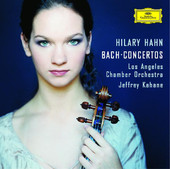
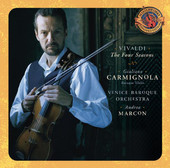
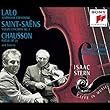
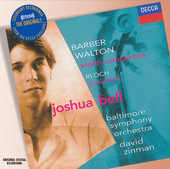



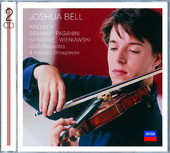

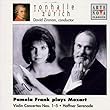




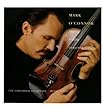

 Phyllis Freeman
Phyllis Freeman

